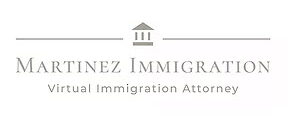What Is an I-130 Form?

There are many ways to obtain a green card in the U.S. Generally, each of these paths requires a specific United States Citizenship and Immigration Services (USCIS) form. U.S. citizens (USCs) or lawful permanent residents (LPRs) can use Form I-130 Petition for Alien Relative to sponsor a family member seeking a green card.
Errors or oversights when completing Form I-130 can lead to a denial, so it is incredibly important to seek the guidance of a knowledgeable green card lawyer to oversee this process.
Form I-130 Requirements
Form I-130 is the first step in helping an eligible relative apply for a green card and immigrate to the U.S. The main purpose of the form is to establish the familial relationship between the petitioner (or sponsor) and the family member who wants a green card (or beneficiary.)
Only immediate family members can file Form I-130 on behalf of a relative. That includes:
- Spouses
- Children
- Parents
- Siblings
Other types of relatives are not allowed to sponsor a relative using Form I-130—even if they are legitimately related. Examples of relatives who are NOT eligible to be a Form I-130 sponsor include grandparents, adoptive parents/children, aunts, uncles, cousins, nieces, and nephews.
The family member seeking a green card must be living outside of the U.S. at the time. If they are currently in the U.S, the petitioner would use Form I-485 Application to Register Permanent Residence or Adjust Status.
Form I-130 Instructions
Form I-130 can be filed online or by traditional mail. To submit it online, the petitioner must have an account with USCIS. We generally recommend this method because it streamlines the process and allows us to conveniently upload documents, review case correspondence, and check the status of your application.
Along with Form I-130, the petitioner must provide supporting documents that verify (1) their relationship to the beneficiary and (2) their right to file the form in the first place as a USC or LPR.
These supporting documents might include:
- Sponsor’s birth certificate
- Sponsor’s proof of citizenship or green card holder status
- Proof the familial relationship exists
- Proof the relationship is not false or fake
- Proof of the beneficiary’s nationality
- Proof of any name changes for the sponsor and/or beneficiary
If you are filing for multiple relatives, you need a separate Form I-130 for each. If the beneficiary is your spouse, you also need to complete Form I-130A Supplemental Information for Spouse Beneficiary to validate the marital relationship.
Martinez Immigration can help you obtain the proper documentation to support your petition and improve your chances of a positive outcome. In addition to Form I-130 and these supporting documents, there is a $535 filing fee which can be paid with money order, personal check, cashier’s check, or credit card.
How Long Does Form I-130 Take to Process?
The processing time for Form I-130 largely depends on the context of your relationship to the beneficiary, any backlog of cases at your local USCIS field offices, and any issues with your documents. The process can take anywhere from 13-20 months to up to several years to complete.
How An Immigration Attorney Can Help
It’s so important to ensure Form I-130 is accurate, complete, and signed. Any omissions or mistakes can almost guarantee a rejection from USCIS. If you cannot obtain certain documents to verify your status, we can help in that regard.
We also check online to see the progress of your application and keep you updated along the way. If your petition is rejected, we explore all possible avenues to help your loved one obtain a green card. We believe in reconnecting families, and we do everything legally possible to make that happen.
Call a Green Card Lawyer for Immediate Help
Call or book a virtual consultation with Martinez Immigration to discuss your situation and work with a skilled attorney who is committed to improving the lives of clients just like you. Based in Allen, Texas, Managing Attorney Kathleen Martinez and her team assist clients across the U.S.
We got you covered!


